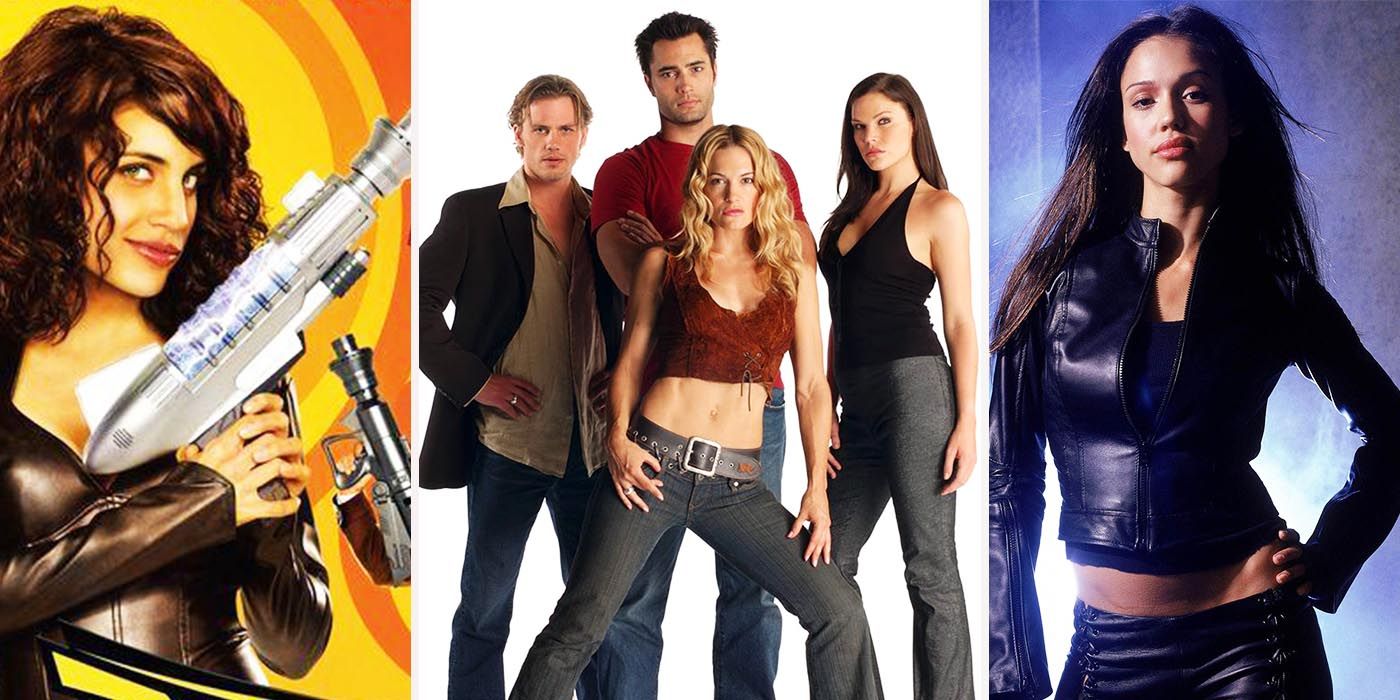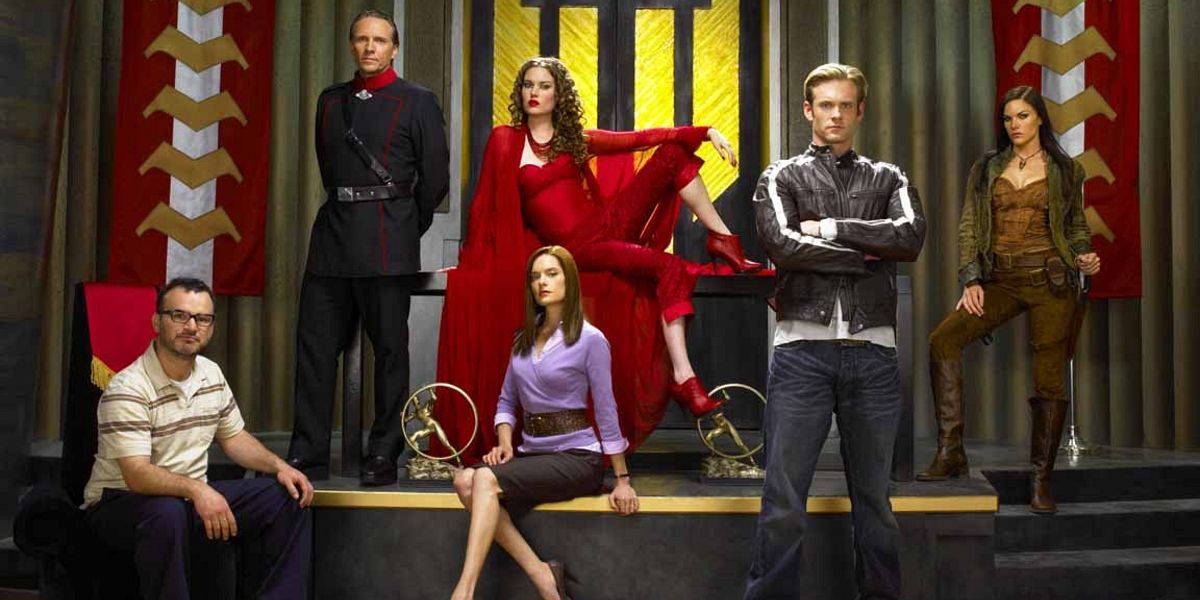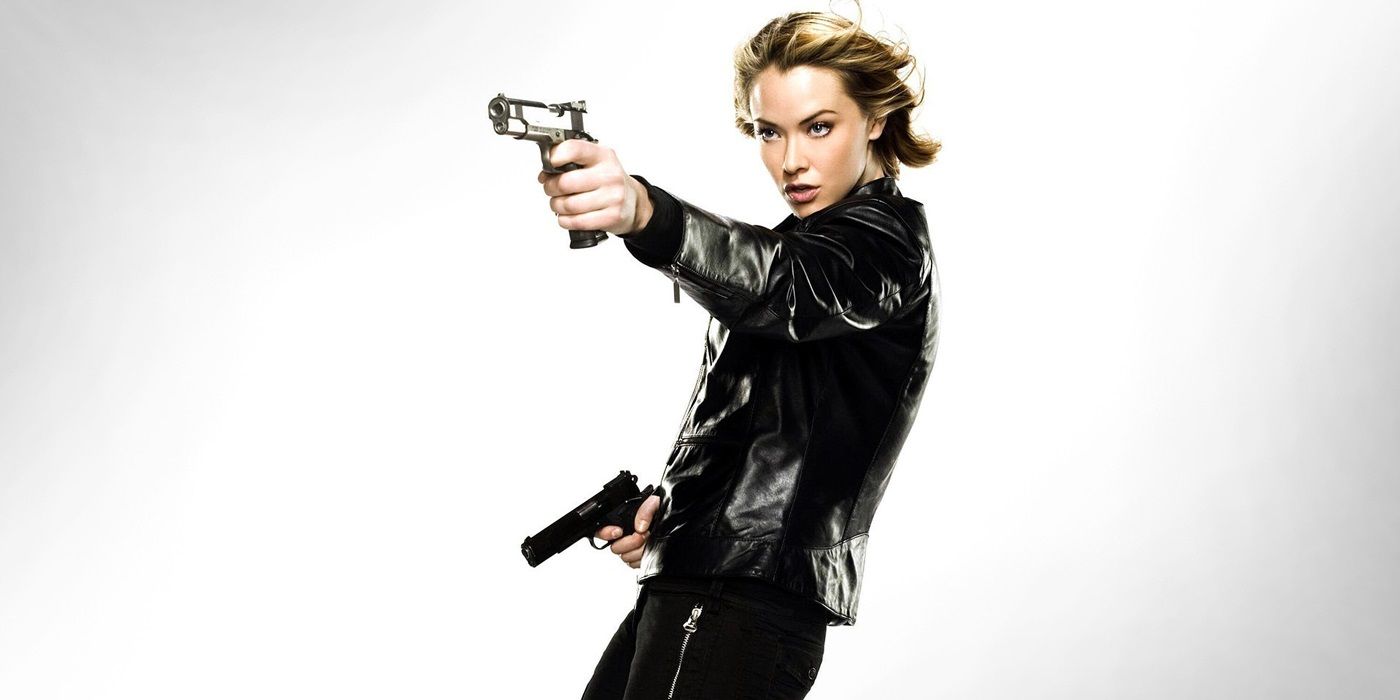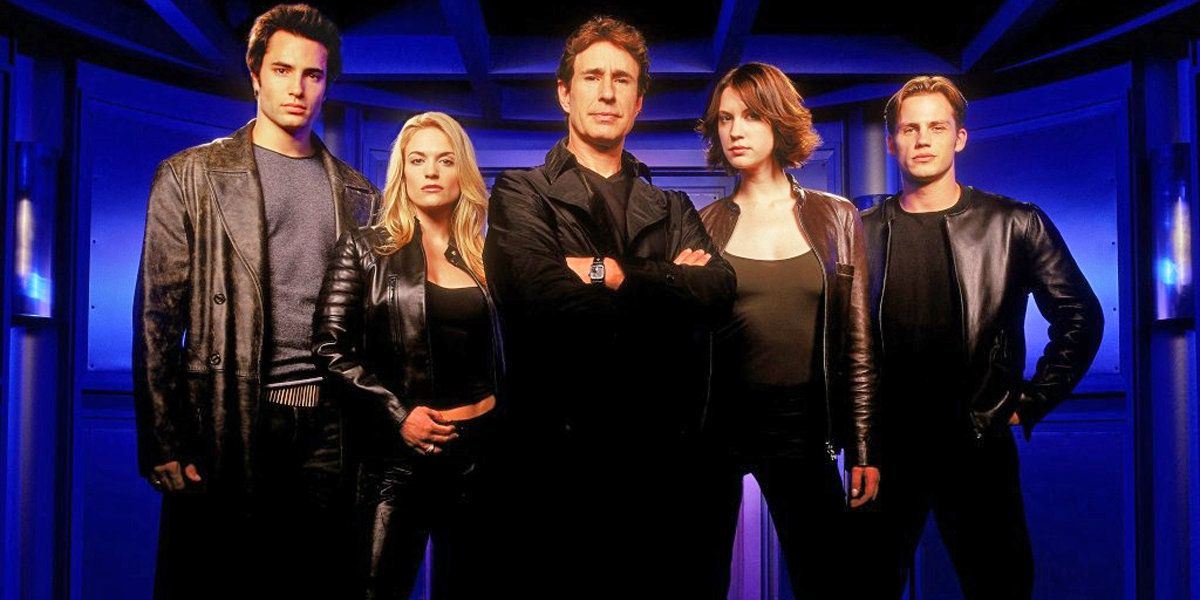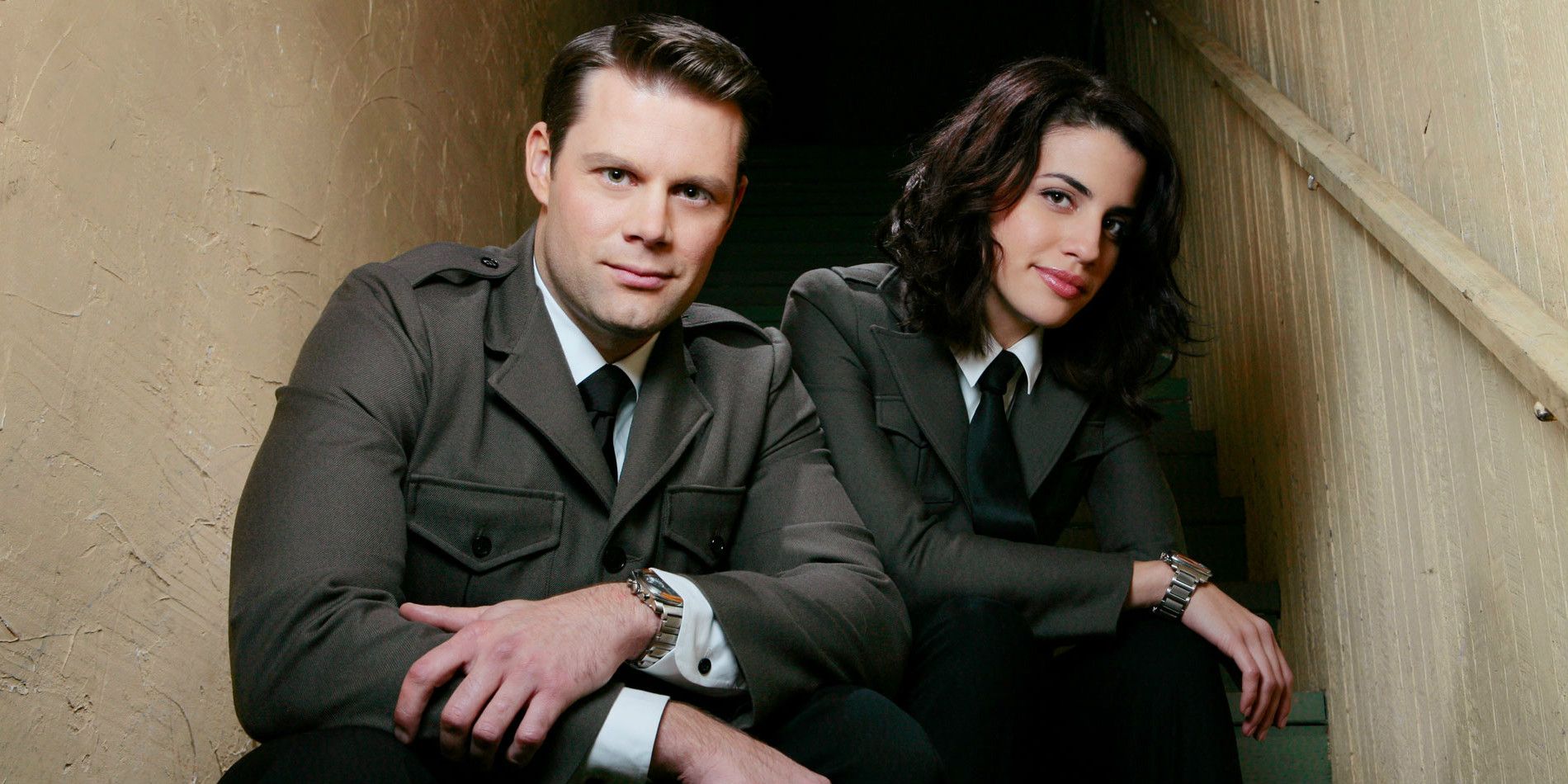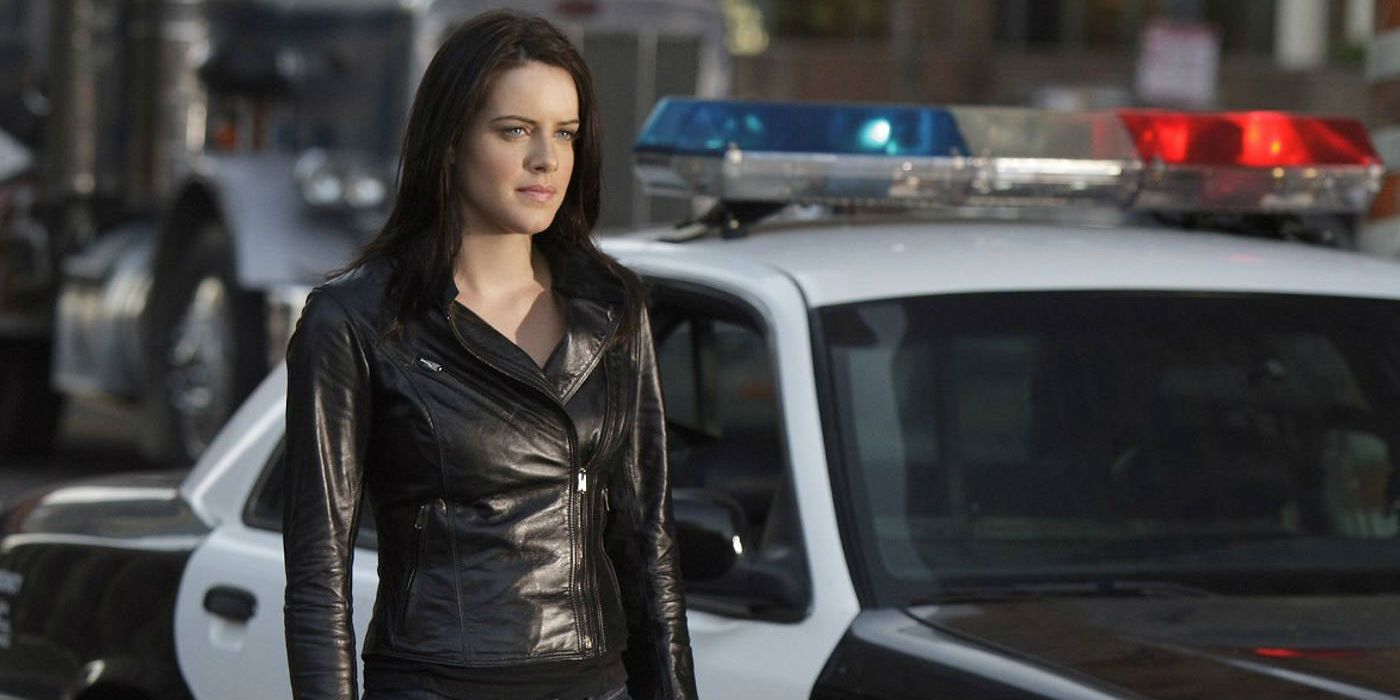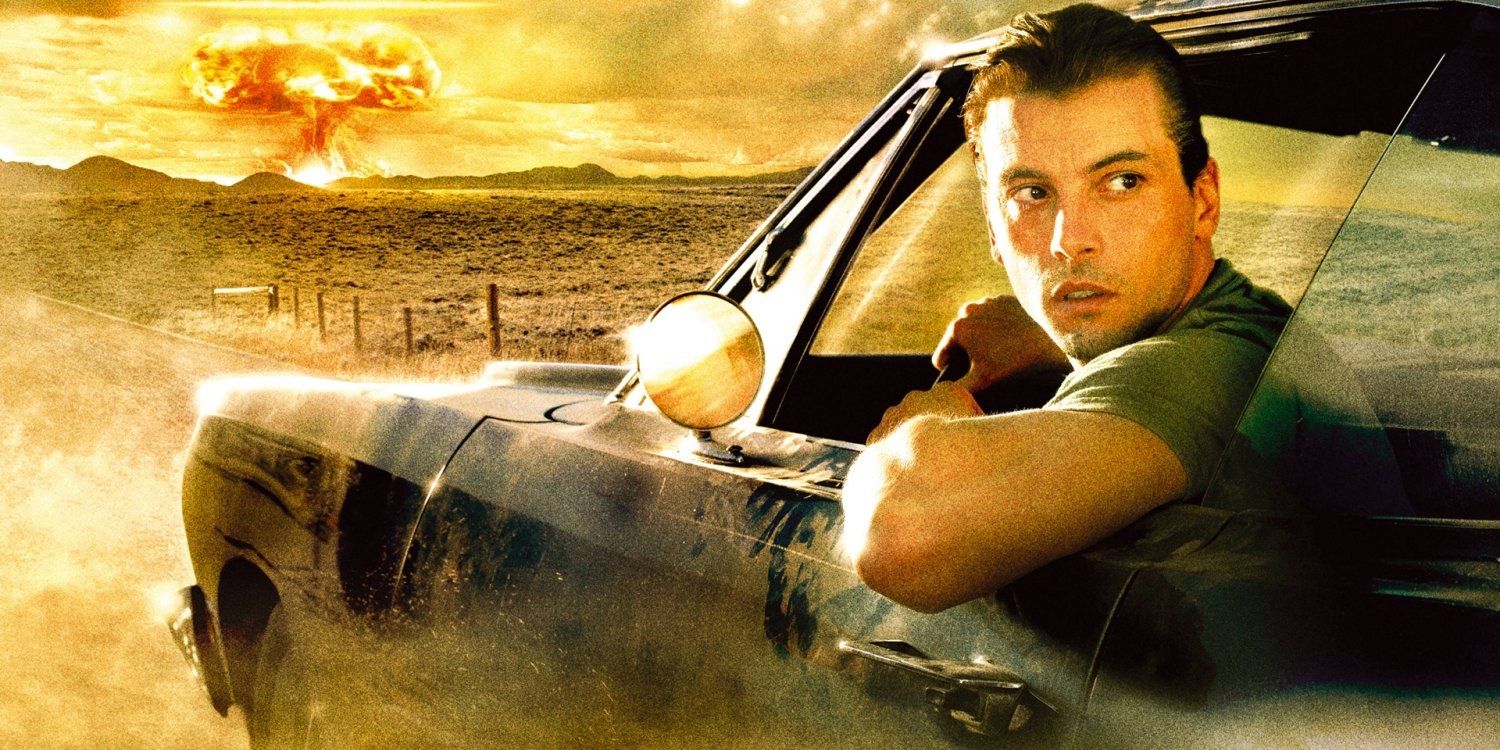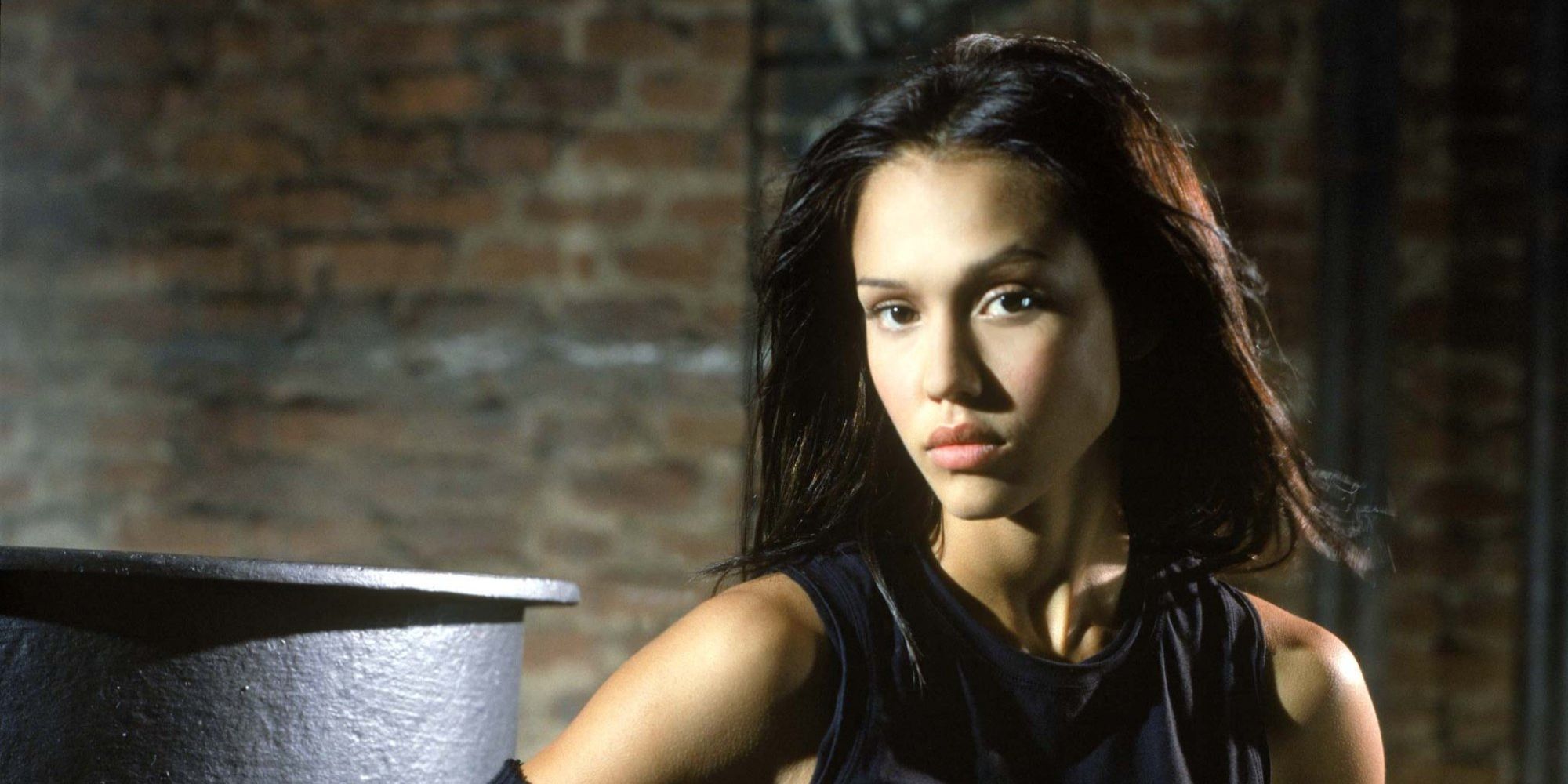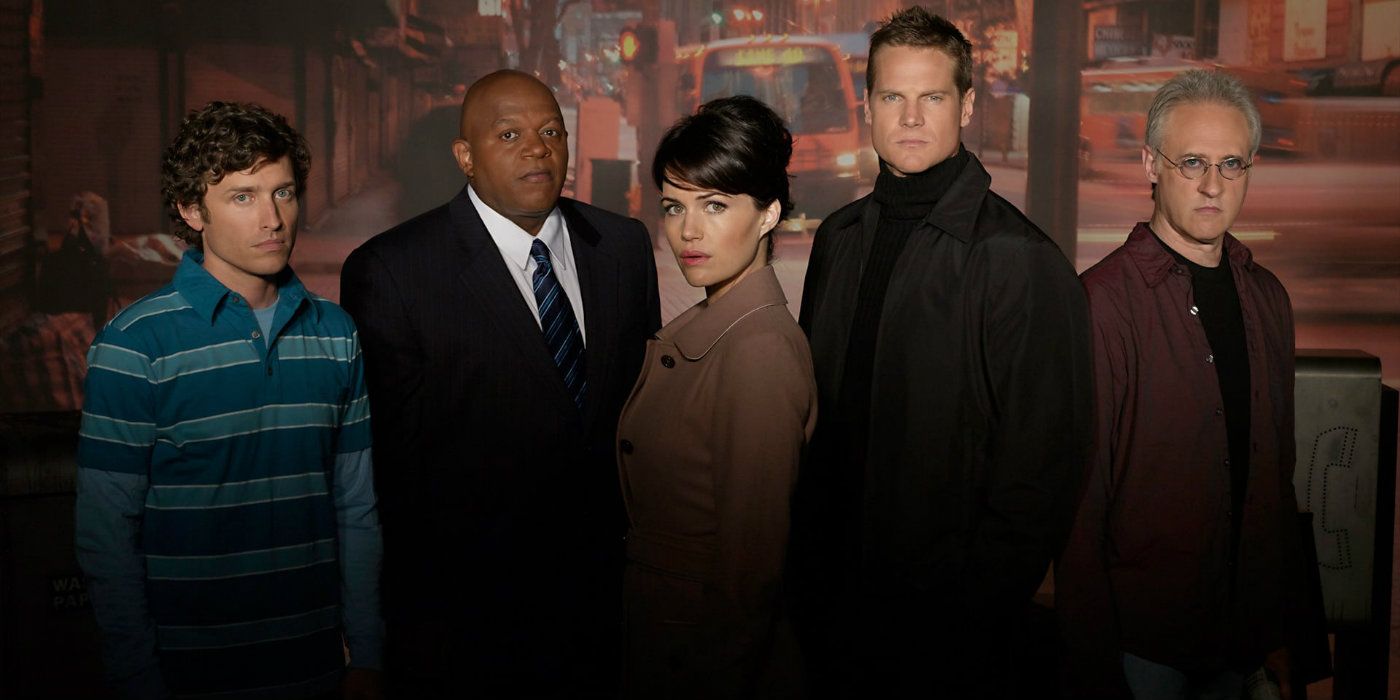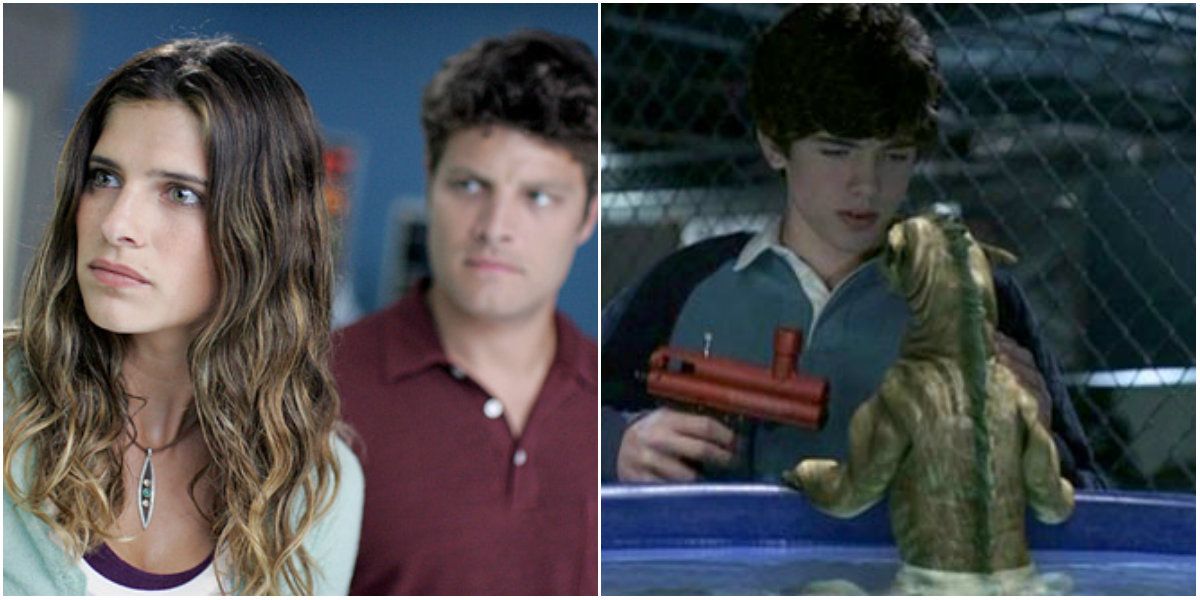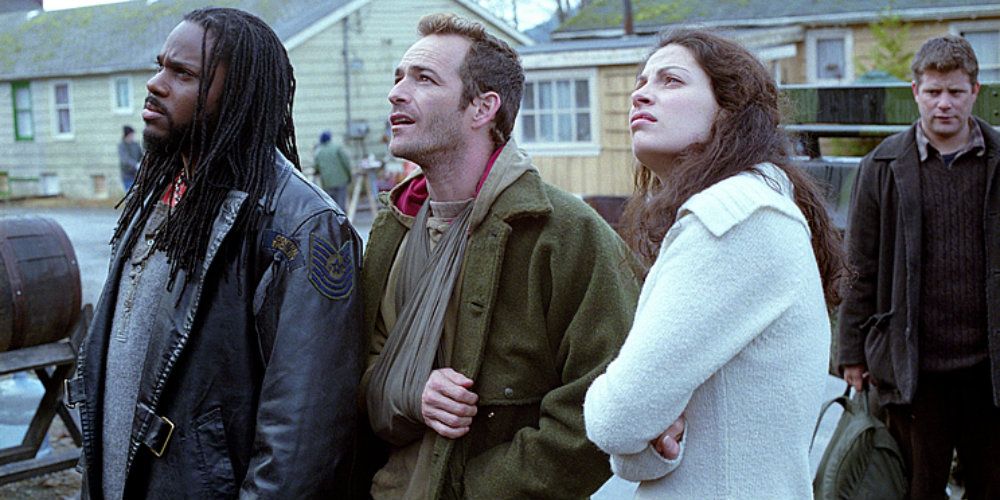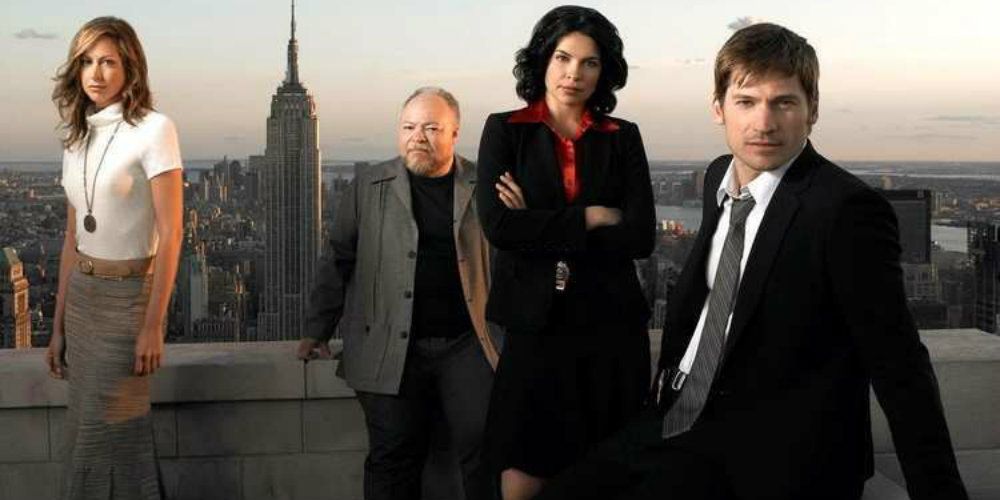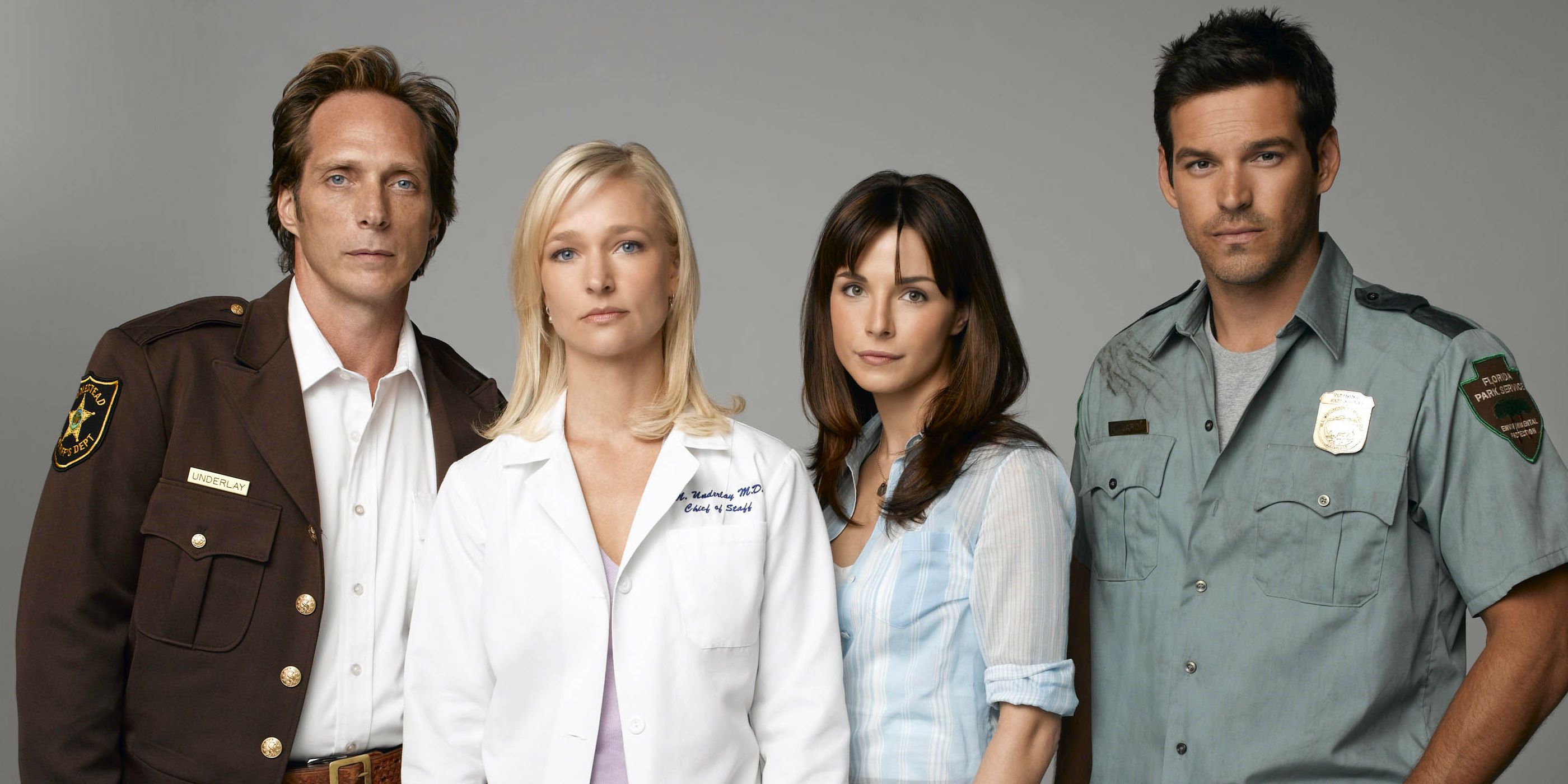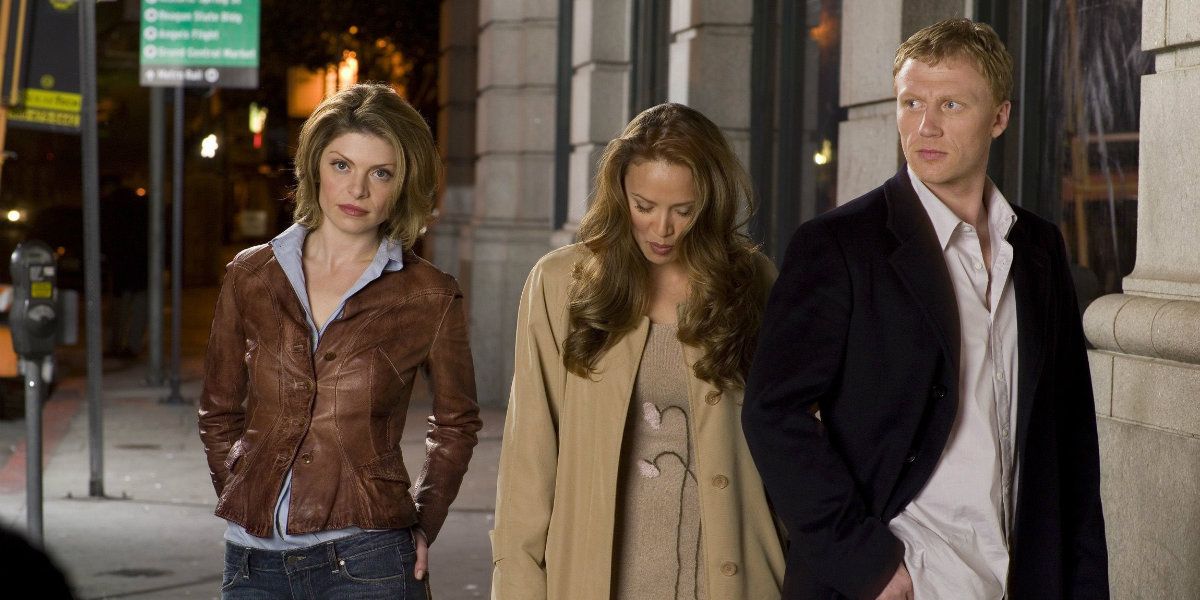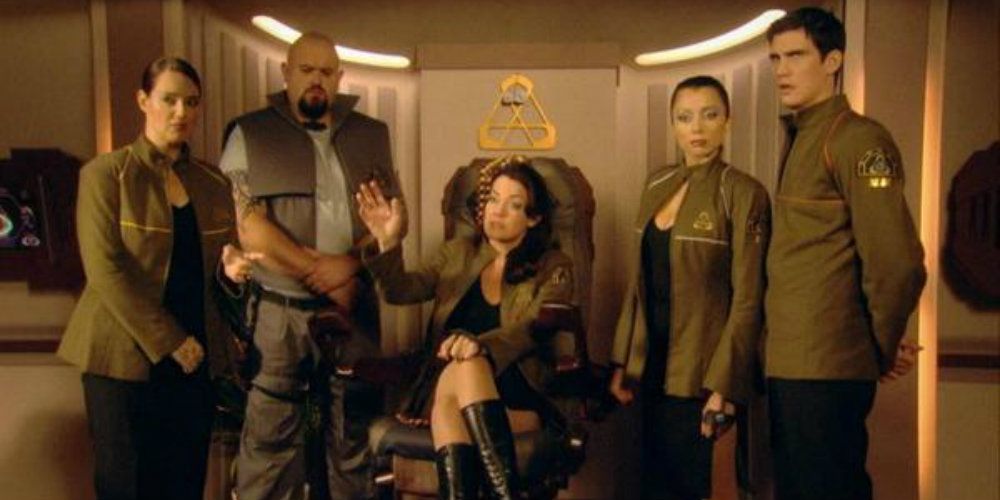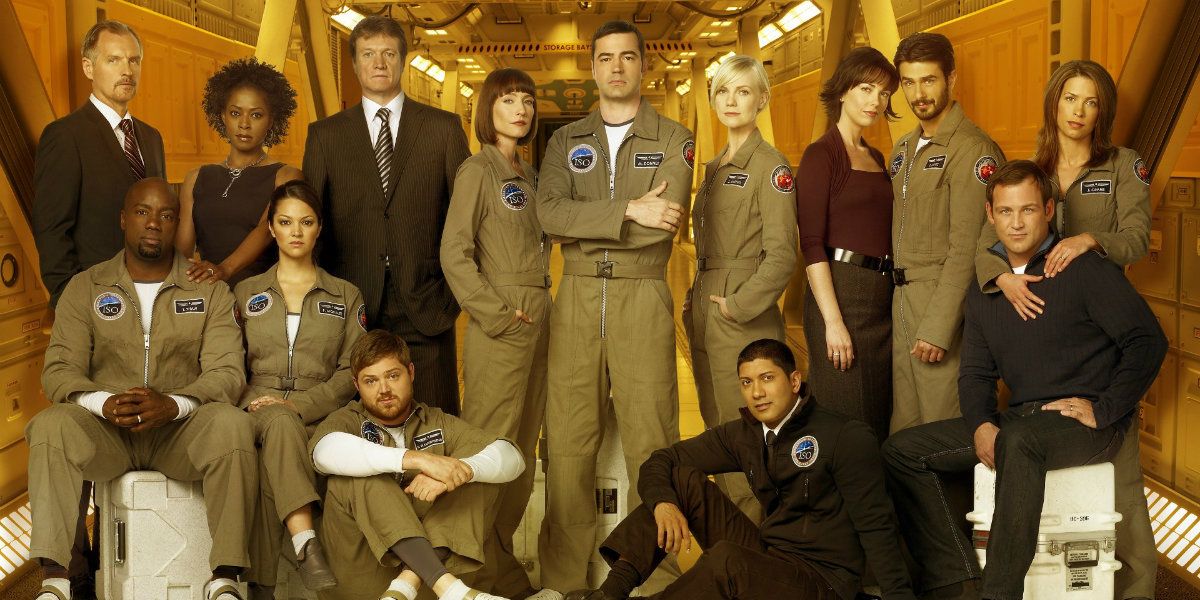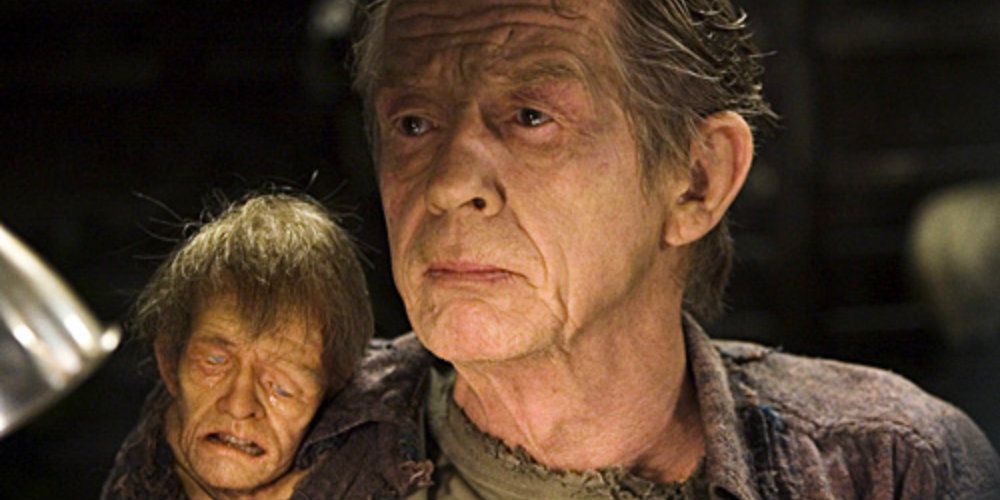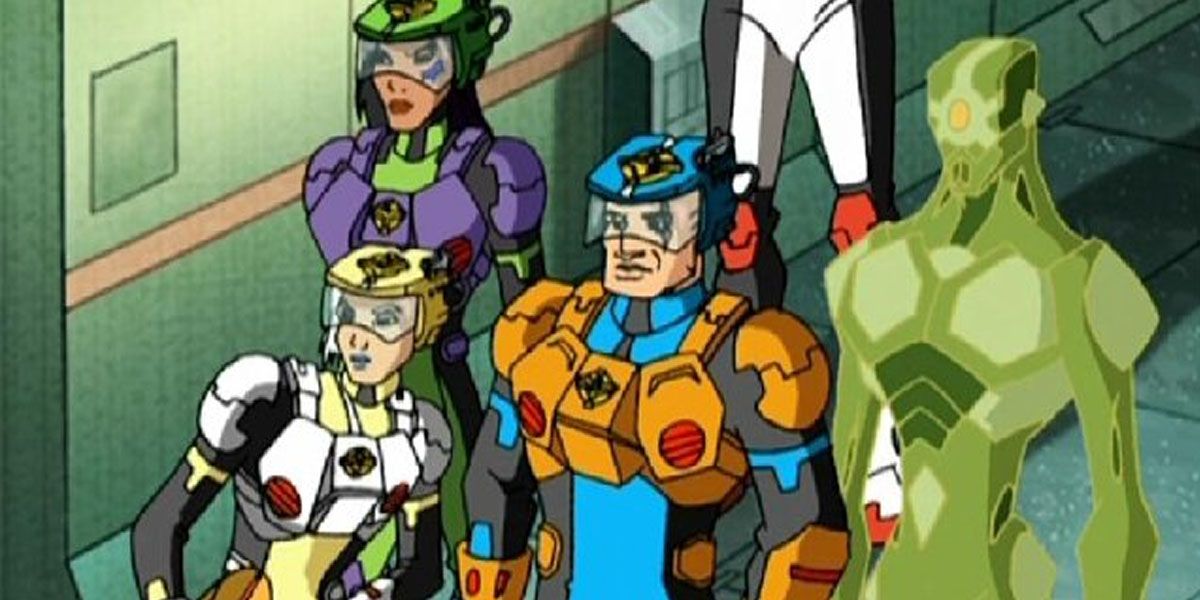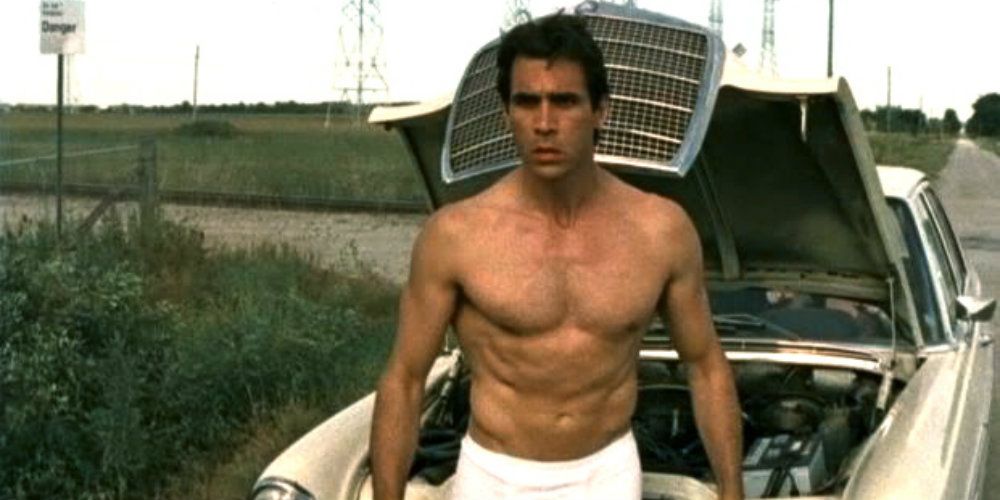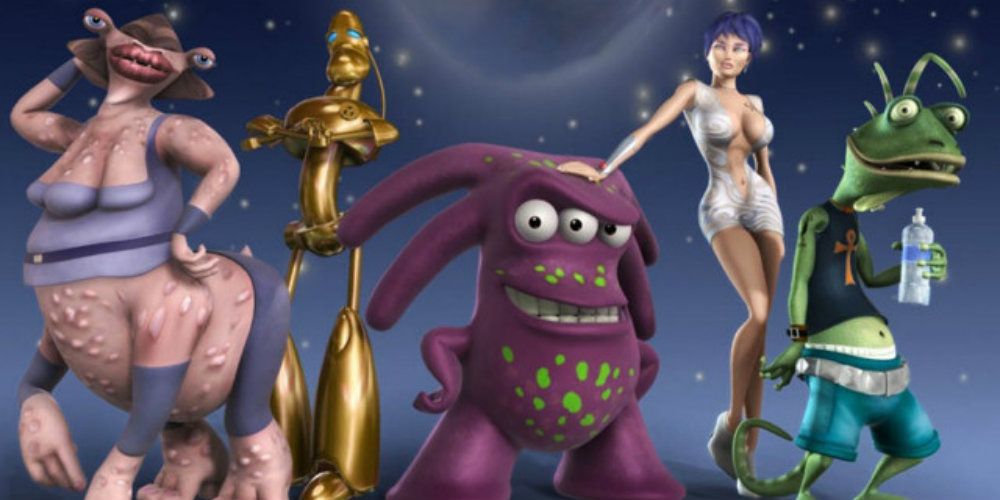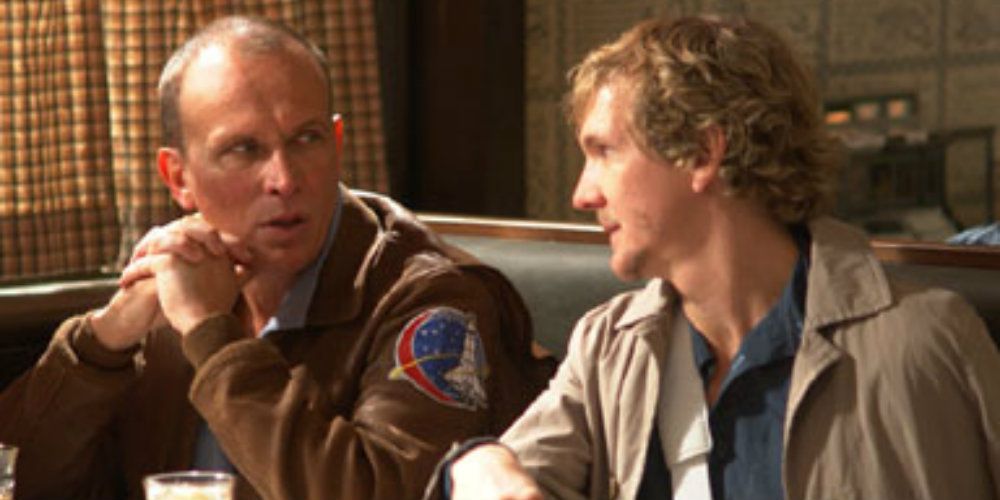Science fiction television existed even before most people had televisions-- the BBC ran a televised version of a sci-fi stage play called R.U.R. all the way back in 1938, which is generally considered to be the first time sci-fi was ever broadcast anywhere on TV. In America, sci-fi made its television debut in 1949 via the futuristic adventure series Captain Video and His Video Rangers, which ran through 1955.
That said, it was during the 1960s that sci-fi television really came into its own, from Star Trek to Doctor Who to The Twilight Zone. While it has experienced various stretches where its popularity waned a bit, sci-fi has never really been absent from our television screens. In particular, it really seemed to see a resurgence in the late-1980s with the debut of Star Trek: The Next Generation, and it hasn't really slowed down since.
At the turn of the millennium, when we finally reached the once-futuristic-sounding "year 2000," it felt like there was yet another renaissance of sci-fi TV. The increased affordability of computer-driven special effects for television shows only further fueled a new generation of sci-fi TV shows during the first decade of the 21st century.
Of course, for every hit like Lost and widely-loved cult favorite like Firefly, there are dozens more sci-fi shows that have faded into obscurity, largely only remembered by the relatively small number of people who actually gave them a chance and managed to click with them.
Here are 20 Forgettable '00s Sci-Fi TV Shows Only Superfans Remember.
20. Flash Gordon
Although Flash Gordon was originally a comic strip and then a 1950s TV series, what is by far the most well-known incarnation of the franchise is the delightfully cheesy 1980 movie with that iconic Queen theme song. It shouldn't come as a surprise that the movie's screenwriter-- Lorenzo Semple Jr.-- was one of the driving forces behind the campy 1960s Batman live-action series, as the similarities are impossible to deny.
Speaking of the Adam West Batman series, there was a time when it was scoffed at by fans of the Caped Crusader and comic book adaptations in general, but people eventually began to come around and recognize how fun and innovative it truly was. Still, during that time when people seemed to be determined to distance themselves from anything equating a superhero to "fun" or "silliness," the 2007 Flash Gordon reboot aimed to give the character a more modern, more serious makeover.
The result? One episode of the show was called "quite possibly the worst episode of anything, ever" by UK-based sci-fi magazine SFX, which later called the series itself the worst of any that it had ever reviewed during the course of its then-200-issue run.
SyFy Channel, which ran the show, thought it was at least popular enough to let its entire 21-episode first season run its course-- but they didn't renew it for a second season.
19. Painkiller Jane
Painkiller Jane was initially just a comic book miniseries starring the titular gun-toting heroine, but she would eventually cameo in/have crossovers with a number of big-name series, including The Punisher, Hellboy, Vampirella, and The Terminator. A new standalone series has also recently been launched, just in time for news of a Painkiller Jane movie.
Though it has been a slow-moving production, everything seems to still be on track for an eventual Painkiller Jane feature film starring Jessica Chastain. That won't be the first time Jane has seen a live-action adaptation. The first was the 2005 SyFy Channel original movie starring Emmanuelle Vaugier, Richard Roundtree, and Grey's Anatomy's Eric Dane. Two years later, the cable network decided to see Jane go again, this time with a series.
Starring Kristanna Loken as well as sci-fi TV show regular Alaina Huffman (Supernatural, Smallville, Stargate Universe), the show only lasted for a single 22-episode season.
It wasn't received as positively as the movie (which also was only slightly-well-received to begin with).
After that, SyFy went back to making movies about giant hybrid monsters, and Jane took some time off from subpar adaptations. Here's hoping that Ms. Chastain can finally do right by the intriguing character.
18. Mutant X
If you think that Marvel and Fox fighting over who owns what in terms of Marvel Comics properties is something that didn't really happen much until the MCU, think again. It was happening at least as far back as 2001, the year the syndicated TV series Mutant X debuted.
Fox, whose deal to develop X-Men properties was already in place, claimed that Marvel and Fireworks Entertainment had created a show that was too similar to the X-Men in Mutant X, with a judge ruling that Mutant X could continue so long as it didn't make any specific references to the X-Men. Sound familiar?
Connected to the Mutant X comic book series largely in name only-- and sans the X-Men characters that appeared in it, like Havok, Ice-Man, Elektra, and Magneto-- the TV show introduced new characters Adam Kane, Shalimar Fox, Jesse Kilmartin, Emma DeLauro, and others who had gained mutant-like powers via genetic engineering (rather than being born with them, another important distinction from the X-Men).
The show had a decent enough following to go for three seasons and was even renewed for a fourth, but was the unfortunate victim of the acquisition and subsequent closure of its main production company, Fireworks Entertainment.
Perhaps as something of a final middle finger to Fox, Marvel would eventually retroactively add the events and characters of the Mutant X TV show to an official alternate reality within the Marvel universe, making them Marvel canon (kind of).
17. The Middleman
Throughout the 2000s, television networks were desperately trying to replicate the success of Lost-- arguably none more than ABC itself, who kept trying to get something going to take over for Lost as it wound down toward the end of the decade. Who better to pitch Lost's replacement than someone who had worked on Lost?
Javier Grillo-Marxuach, who was one of the main writers on the first two seasons of Lost, decided to adapt his own comic book series into ABC's next potential sci-fi hit. Debuting in June of 2008, The Middleman starred Matt Keeslar (Dollhouse, Masters of Horror) and Natalie Morales (Parks and Recreation, Santa Clarita Diet) as a freelance "fixer" and his sidekick, respectively, who took on all manner of sci-fi villain tropes.
Met with strong critical praise, the show was farmed out to ABC's cable channel ABC Family (now called Freeform), which seemed an odd fit for a witty sci-fi series as it sat alongside fare like Greek, The Secret Life of the American Teenager, and and Make It or Break It.
The show failed to find its ideal audience on the network, and it was canceled after only 12 episodes-- though the crew was originally promised 13.
The story planned for that final show was instead moved to The Middleman's comic series in an effort to properly tie up the events of the show. The comic books continued through 2014.
16. Bionic Woman
Apparently, 2007 was the year to revive decades-only, campy sci-fi, and give it a modern twist. Or maybe it wasn't, as Bionic Woman wasn't any more successful in this endeavor than Flash Gordon.
Even though Bionic Woman had the benefit of being on NBC rather than SyFy Channel, it didn't fare much better than Flash Gordon in terms of critical reception.
A common criticism was against star Michelle Ryan, who was accused of being "too inert, not nearly aggressive enough for the role," with one reviewer flat out saying they "got the wrong Bionic Woman."
In fact, most critics felt that the show made a huge mistake in casting Ryan in the lead role rather than Battlestar Galactica's Katee Sackhoff, who played a rival bionic woman and just made everyone who watched the show wish she was the star instead.
Ratings-wise, the show started off strongly, with its debut episode drawing NBC's highest numbers for a midweek premier since The West Wing in 1999. Unfortunately, the show ended up being one of the many victims of the 2007-2008 writers' strike, and was put on hiatus after its first eight episodes were produced and aired-- after which NBC chose not to renew it even after the strike was over.
We're all still waiting on our Katee Sackhoff-led Bionic Woman re-reboot!
15. Jericho
Starting with the oft-repeated story of how the original Star Trek series was canceled early in its run but was brought back due to intense fan outcry, it's been something of a tradition for sci-fi shows to rely on passionate fans to keep them afloat admit floundering ratings.
After the high-concept Jericho was axed by CBS after only a single season, its fans sent an astonishing 20 tons of nuts to CBS' headquarters as a message that they wanted another season, in reference to a character's catch phrase in the season one finale.
CBS relented, and gave the show-- which starred Skeet Ulrich (Scream, Riverdale), Lennie James (The Walking Dead, Blade Runner 2049), and Ashley Scott (Dark Angel, Birds of Prey) in a post-apocalyptic world decimated by nuclear war-- an order for a second season. However, the ratings just still weren't there-- and in fact, were even worse than they had ever been.
CBS' entertainment boss, Nina Tassler, admitted that while there were "passionate viewers watching the program; we simply wish there were more." At the end of the day, ratings are where the money is, and no money means no show.
Luckily, Jericho is one of those shows that got to live in on comic book form, with two additional "seasons" taking place within the pages of a series of IDW-published comic books.
14. Dark Angel
Before ridiculously-successful filmmaker James Cameron decided to dedicate the majority of his energy to making five Avatar movies-- and badmouthing comic book movies at every opportunity-- he actually took a brief detour into television with the sci-fi series Dark Angel.
The first major breakthrough role for future superstar-- and star of multiple movies based on comic books (Fantastic Four, Sin City)-- Jessica Alba, Dark Angel was one of the higher-budget network TV shows of its era when it debuted in 2000. As such, it needed to maintain pretty stellar ratings in order to justify its cost, which it failed to do following an ill-advised move to Friday nights and some questionable plot changes in the second season.
Even a show led by James Cameron, still hot off of the massive success of Titanic and with basically unlimited money to pour into it, is no match for bad ratings.
Still, Dark Angel, especially lead character Max and Alba's performance of her, was well-received and is often considered a worthy inclusion to Cameron's stable of strong female action heroes that includes the likes of Ellen Ripley and Sarah Connor.
The show was also popular enough to justify continuation via thee novels and a video game adaptation for PlayStation 2 and Xbox, with Alba returning to voice Max.
13. Threshold
Threshold boasted a pretty impressive cast of past, present, and then-future sci-fi icons, featuring the talents of Carla Gugino (Watchmen, Wayward Pines); Brent Spiner (Star Trek: The Next Generation); Peter Dinklage (X-Men: Days of Future Past, Avengers: Infinity War); and Charles S. Dutton (Alien³). It had some pretty big heavy-hitters behind the scenes as well, produced by Brannon Braga (Star Trek), David Heyman (Harry Potter), and prolific comic book adapter David S. Goyer. What could go wrong?
Well, the first misstep was when CBS decided to debut the show on Friday nights. It was then moved to Tuesday nights in an effort to find more viewers, only it was put up against the immensely popular Law & Order: SVU-- which would prove to be the second and ultimately fatal mistake made in regards to the show. Threshold was such a ratings disaster that CBS didn't even think it was worth airing all 13 already-produced episodes, showing only nine of them.
The show centered around a top-secret government task force whose job it is to deal with the threat of extraterrestrial beings without the general public finding out about it.
Like any show early in its run, Threshold was still finding its voice and was getting all the pesky origin stuff out of the way when the plug was pulled, so it never really got the chance to come into its own and make use of its stellar cast and creative team.
12. Surface
For whatever reason, a lot of sci-fi television shows go the aquatic route, taking place on, near, or under the water and with a heavy emphasis on fictional sea creatures. The success of ABC's Lost certainly didn't do much to dissuade people from thinking that the key to sci-fi TV show success is to have some sort of watery backdrop to the proceedings.
Since it debuted only a year after Lost it is hard to accuse Surface of being a direct imitator as it was likely already in the works, but the former's success probably had a lot to do with getting the latter green-lit.
In Surface, various strange occurrences are happening across the world both in and related to Earth's oceans, and it's up to marine biologist Laura Daughtery (played by Lake Bell, with the perfect name for someone who stars in a sea-based show) and various others to get to the bottom of it. Among Bell's co-stars were a pre-Gossip Girl Leighton Meester, and Jay R. Ferguson, who would go on to play Stan Rizzo on Mad Men and the father on the sitcom The Real O'Neals.
NBC squandered whatever buzz Surface had built through its initial ten-episode airing by putting the show on an extended hiatus-- only to find that nobody cared anymore when it finally returned months later. After airing the final five produced episodes, Surface was canceled in May 2006.
11. Jeremiah
J. Michael Straczynski is a name well known to sci-fi fan. In addition to being the creator of the beloved series Babylon 5, Straczynski was the main writer on the Amazing Spider-Man comic book series from 2001 to 2007, was a major creative force behind the first season of The Real Ghostbusters, wrote several episodes of the 1985 Twilight Zone reboot, co-created the Netflix series Sense8 with the Wachowskis, and was a co-writer on the movies Thor, World War Z, and Underworld: Awakening.
Not counting the short-lived 1999 Babylon 5 spin-off Crusade, Straczynski's next foray into television was the Showtime series Jeremiah.
The 2003 sci-fi show took place in a post-apocalyptic world decimated by a deadly virus-- back before that was a completely overdone concept for a television show.
It starred Luke Perry (Beverly Hills 90210, The Fifth Element), Malcolm-Jamal Warner (The Cosby Show, Community), Sean Astin (Lord of the Rings, Stranger Things), and Kandyse McClure (Battlestar Galactica, Hemlock Grove).
While the plan was for Jeremiah's story-- based on a series of 1970s novels-- to be told over five seasons, managerial changes at Showtime led to a move away from sci-fi programming, and thus the show was canceled before it even reached season three. In fact, Showtime so quickly lost interest in the show that it initially only aired the first half of the second season, waiting an entire year before it finally showed the final eight episodes in 2004.
10. New Amsterdam
One part Highlander, one part cop drama, and one part breakthrough television role of a future Lannister, New Amsterdam is a bit ironic in that's a show about a 400-year old man that only managed to last eight episodes.
Starring Game of Thrones' Nikolaj Coster-Waldau, New Amsterdam's short run lasted from March to April of 2008 and focused on a modern-day New York police officer who had a spell cast on him centuries ago that made him look eternally 35 years old.
It had a very strong start, with its pilot episode finishing 6th in the ratings that week-- but dropped to 15th by week two, 20th by week four, and 52nd by week five. Fox didn't give it many more weeks with which to continue its rapid descent, and pulled the plug after episode eight. The show did manage to earn an Emmy nomination, for Main Title Design, but it didn't stand a chance as it was up against the legendary Mad Men opening title sequence.
Obviously, Coster-Waldau's career was just fine, as were those of co-stars Stephen Henderson (Lincoln, Lady Bird), Zuleika Robinson (Homeland, The Following), and co-creator Christian Taylor (who went on to co-create the animated series Star Wars: The Clone Wars).
9. Invasion
Some shows do pretty much everything right, but are victims of circumstances beyond anyone's control. Invasion, ABC's 2005 sci-fi show loosely based on Invasion of the Body Snatchers, was about a hurricane that ended up spawning water creatures that began terrorizing citizens. There was just one problem-- Hurricane Katrina, which hit right when promos for Invasion were just beginning.
Fearing the backlash of promoting a sci-fi show about a fake hurricane amidst news of a real-- and devastating-- hurricane, ABC ceased promoting the show almost entirely.
It's too bad, because the William Fichtner-led show was a hit with critics and with the audience that managed to find it despite the lack of promotion. Other members of the solid cast included future American Horror Story star Evan Peters, a pre-Mad Men Elisabeth Moss, and Kari Matchett of the hit USA show Covert Affairs.
The cast and crew of the show seemed more baffled than anyone by Invasion's premature cancellation. Actor Tyler Labine (Tucker & Dale vs Evil, Reaper) once told The A.V. Club, "I still to this day don't know why that show got canceled. It was just that the network didn't love it, that's all."
Creator Shaun Cassidy was asked during a Reddit AMA which cancellation of one of his shows bothered him the most, and he chose Invasion, saying it was "the most surprising."
8. Journeyman
Before beginning his ten-years-and-counting stint as Dr. Owen Hunt on Grey's Anatomy, Scottish actor Kevin McKidd was given a few other shots at television stardom that ultimately didn't pan out. He spent two seasons as one of the main cast members on the short-lived Showtime period drama Rome, and between that and Grey's, he headlined a sci-fi series called Journeyman on NBC.
In a conceit inspired by classic sci-fi series Quantum Leap, Journeyman was about a reporter who finds himself suddenly jumping backward in time into scenarios where it seems he is meant to change someone's fate in a positive way.
In an interesting twist, the reporter eventually crosses paths with his ex-fiancee, who he believed to have passed away but had actually been jumping back in time herself.
Journeyman got only 13 episodes before word came that NBC was shutting the show down. Inspired by a similar stunt pulled by Jericho fans to get a second season of that show made, Journeyman fans began sending boxes of Rice-A-Roni to NBC, as the product was connected to San Francisco where the show was set. Though it proved to be a futile endeavor, it at least got the attention of creator Kevin Falls, who wrote on his blog how touched he was by the outpouring of support for his show.
7. Starhyke
Sci-fi lends itself quite well to parody, and when done right, a parody of sci-fi can be just as compelling as "serious" sci-fi. For instance, many people consider the 1999 film Galaxy Quest to be one of the best "Star Trek movies" ever made, even though it isn't actually a Star Trek movie. Seth McFarlane's The Orville was recently renewed for a second season.
There are those sci-fi shows that fall somewhere in the middle of the spectrum, not quite classic but far from embarrassing.
Such is the case of the very-short-lived Starhyke, a British sci-fi series that had so much trouble proving itself worthy of existing that it was filmed in 2004 but didn't make its official television debut until 2011, a whopping seven years later.
Starring Babylon 5's Claudia Christian as well as Bobba Fett himself, Jeremy Bulloch, Starhyke unfortunately never made much of an impact despite its long developmental road and its cast featuring sci-fi royalty.
It wasn't all a total loss, though, as the show's creator discovered he had a brain tumor from the medical check-up that was required for him to get insurance on the project, and it was caught early enough that he was able to have it successfully removed.
6. Defying Gravity
Few shows start off as ambitiously and then crash and burn as quickly as Defying Gravity. A massive production that involved six different companies across four countries (Canada, Germany, England, and the United States), Gravity definitely wasn't lacking in developmental muscle or broadcast reach. The large ensemble cast was led by Ron Livingston (Office Space, Band of Brothers) and it was created by James D. Parriott, who had been a writer and executive producer on Ugly Betty and Grey's Anatomy.
The show, which took place aboard a spaceship in the year 2052, was yet another series that only ever got to produce an unlucky 13 episodes before being canceled.
It's hard to say for sure exactly why Defying Gravity failed so hard and so quickly-- though in terms of its American broadcast, it being initially aired as a summer show probably didn't do it any favors in helping it to find an audience.
So quickly did ABC turn its back on Gravity that by November 2009, only a month after the finale, all mention of the show was completely removed from ABC's website, and it only remained available on Hulu for a very short time after. Apparently, it didn't do any better in any of the other four countries where it aired as they didn't bother pushing ahead with continuing the series either.
5. Masters of Science Fiction (aka Stephen Hawking's Sci-Fi Masters)
There seems to be no middle ground with anthology series. They either last a long time and are extremely well-received - like The Twilight Zone, Tales from the Crypt, and Black Mirror - or they barely find an audience and disappear shortly after they debut. This style of show definitely seems to be finding new life via online streaming services, but for a while there, nobody could seem to hit on a formula for an anthology series on TV that warranted the ratings to last more than a season or two.
After the success of Masters of Horror on Showtime, the producers of that show decided to apply the formula to science fiction. Thus, Masters of Science Fiction debuted on ABC in August of 2007. Like most anthology series, Masters boasted some high-caliber talent, including such actors as Malcolm McDowell, John Hurt, Sean Astin, James Cromwell, Clifton Collins Jr, Brian Dennehy, Terry O'Quinn, and Sam Waterston.
The show was narrated by the late Stephen Hawking, and one of the episodes was directed by Star Trek: TNG's Jonathan Frakes. Like Horror, Masters of Science Fiction's episodes were largely adaptations of existing stories by noted authors of the genre.
ABC only ran four of the initial six episodes, and didn't order any additional seasons. In 2012, the Science Channel optioned the rights to air the series' entire run, altering the title to Stephen Hawking's Sci-Fi Masters.
4. Stargate Infinity
It's fascinating how a modestly-profitable sci-fi film with a mostly lukewarm reception that probably should've been forgotten a year after its release was eventually spun off into three different live-action series, two direct-to-DVD movies, a web series, novels, comic books, and several video games (including a planned-- but ultimately canceled-- massively-multiplayer online game, of all things). Stargate's second life as a popular TV brand was also responsible for introducing a new generation of viewers to Richard Dean Anderson, formerly of MacGyver fame.
Stargate also spawned a seldom-remembered early '00s animated series called Stargate Infinity.
The non-canonical series was kid-focused and aired on Fox's Saturday morning lineup from 2002 to 2003.
While many Stargate fans didn't get on board with the show due to its child-friendly nature and its very low-budget look, the show did earn some moderate praise. Its small fanbase was disappointed when the show was canceled due to low ratings before any of the plot threads introduced in its first and only season could be properly resolved.
Nonetheless, Stargate Infinity was popular enough to warrant separate DVD releases in 2003, 2007, and 2008, so it's easy enough to get a hold of for Stargate fans who missed it and are curious to check out this strange little offshoot of the franchise.
3. Tracker
Adrian Paul has definitely been making the sci-fi rounds over the last few decades. While he is most well-known as the lead character on the '90s Highlander TV series, Paul has also appeared in the series War of the Worlds, Relic Hunter, and Charmed, in addition to the films The Void, Code Hunter/Storm Watch, AE: Apocalypse Earth, Eyeborgs, Alien Outpost, and two installments in the Highlander movie franchise.
Adrian Paul tried to follow up his success on Highlander: The Series with another headlining role on a sci-fi show, but it wasn't anywhere near as immortal as his signature role.
Debuting in 2001 on Canadian television, Tracker told the story of an alien who comes to Earth in order to capture hundreds of prisoners who had escaped their confinement and taken the identities of existing humans. The show failed to gain much of an audience and only lasted 22 episodes.
Interestingly, in a similar strategy to what would later be successfully utilized by shows like Futurama and Family Guy, three episodes of the show were later cut together and repackaged as a TV movie called Alien Tracker-- but that also failed to garner much interest and no further "movies" were created from the remaining episodes.
2. Tripping The Rift
Even if you've never seen this show, you probably recognize its blue-haired heroine, Six, who was plastered across billboards and the sides of buses in the early-00s. For those that were able to give the show a chance in spite of its ridiculously-designed poster girl, they found a show that, well, is about as classy as you'd expect.
While modeled as a Star Trek parody, the computer-animated Tripping the Rift was mostly aimed at teenage boys, full of animated flesh, potty humor, and characters with names like Chode McBlob and episodes with titles like "You Wanna Put That Where?"-- even worse, that particular episode is about the crew landing on an all-gay planet, and is handled about as tastefully as you'd expect.
Rift somehow managed to score some decent voice talent, with a cast that included Stephen Root (King of the Hill) Gina Gershon (The Batman), and Maurice LaMarche (Futurama), as well as the casting of Carmen Electra and Jenny McCarthy.
Perhaps because of the juvenile humor and copious amounts of digital eye candy, Tripping the Rift lasted for a baffling three seasons and spawned a direct-to-DVD movie.
Fans were disappointed to find that not only was the movie just three episodes of the show cut together, but that the supposedly uncensored film still featured the "censor balloons" over female body parts that the original broadcasts did.
1. Odyssey 5
Before Showtime decided it was done being in the sci-fi television business, it was actually making a name for itself as being a home for sci-fi fans. In addition to the aforementioned Jeremiah, the cable channel also aired a sci-fi showing starring original Robocop Peter Weller.
Odyssey 5 stars Weller as a member of a shuttle crew who are on a routine space flight when Earth is mysteriously destroyed. The crew is then visited by a being called Seeker who offers them the opportunity to travel back in time five years prior to the Earth's destruction in an effort to prevent the world from ending.
The story went unresolved when it was canceled after only 19 episodes, ending on a cliffhanger.
Series creator Manny Coto didn't have to lick his wounds for long over Odyssey 5's cancellation, as he immediately jumped on board as the lead showrunner for Star Trek: Enterprise, following that up with extended writing stints on 24 and Dexter.
While it would be the last project headlined by Peter Weller, the actor has appeared in a number of TV series since then, including Netflix series Longmire, which has also seen him sit in the director's chair for 4 episodes.
---
What's your favorite forgotten sci-fi show from the 2000s? Let us know in the comments!

